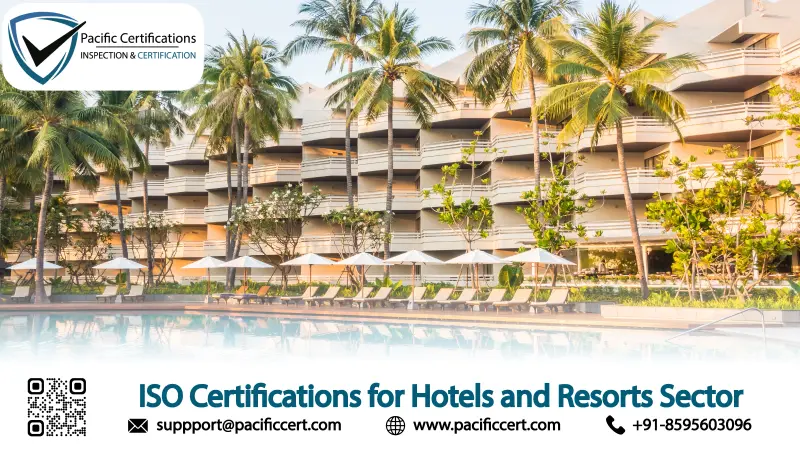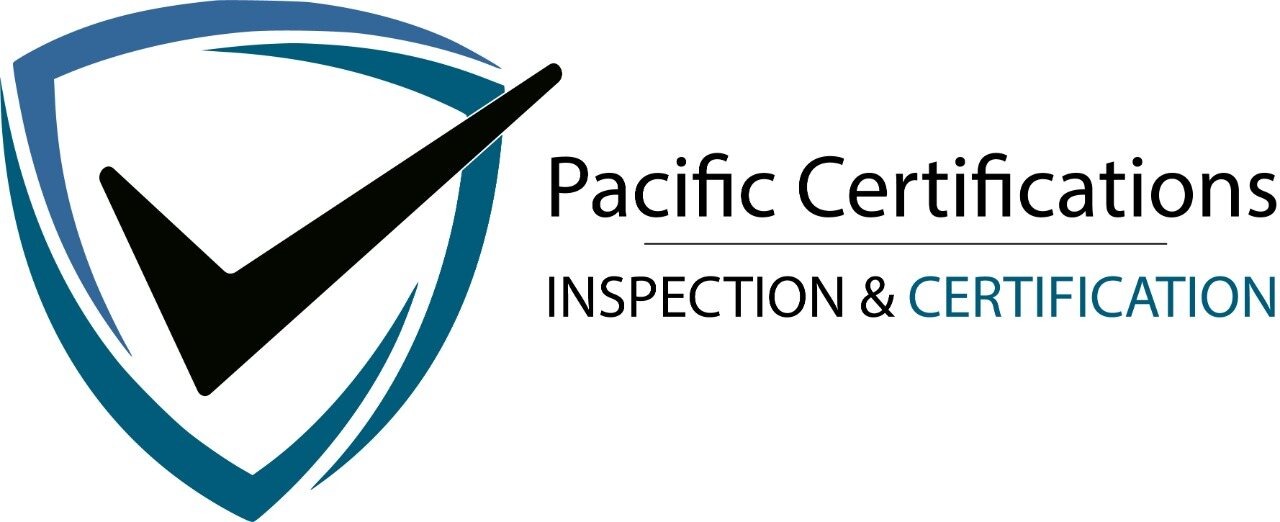ISO Certifications for Hotels and Resorts Sector, Requirements and Benefits

Introduction
The hotels and resorts sector operates in a service-intensive and reputation-driven hospitality environment where guest experience, hygiene standards, data protection, operational continuity, and regulatory compliance directly influence brand value and financial performance. This sector includes business hotels, luxury resorts, boutique properties, leisure resorts, convention hotels, eco-resorts, and mixed-use hospitality developments catering to domestic and international travelers.
With rising guest expectations, increasing competition from global brands and online platforms, stricter health and safety regulations, and growing reliance on digital booking and payment systems, hospitality operators are under constant pressure to demonstrate disciplined governance. Service failures, food safety incidents, safety lapses, or data breaches can quickly result in negative reviews, legal action, or loss of market trust. ISO certifications provide internationally recognized management system frameworks that help hotels and resorts standardize operations, manage risks, ensure compliance, and deliver consistent guest experiences.
According to Statista (2025), the global hotel and resort market is projected to exceed USD 1.3 trillion by 2030, fueled by sustainable tourism, digital booking platforms, and post-pandemic recovery in travel.
Every guest experience is built on trust — ISO certification turns that trust into a measurable, consistent system — Pacific Certifications
Quick Summary
ISO certifications such as ISO 9001, ISO 14001, ISO 45001, ISO/IEC 27001, ISO 22000, and ISO 50001 help hotels and resorts deliver consistent quality, manage environmental and safety risks, protect customer data, and ensure food hygiene. These standards enhance brand credibility, improve guest satisfaction, and make hospitality businesses globally competitive.
For guidance on selecting the most relevant ISO standards for your hotel or resort operations, contact [email protected]
Applicable ISO standards for Hotels and Resorts
Below are the most applicable ISO standards for Hotels and Resorts:
ISO 9001:2015 - Quality Management System (QMS)
ISO 9001 helps hotels and resorts standardize core service processes such as reservations, check-in and check-out, housekeeping, maintenance, concierge services, complaint handling, and service recovery. It improves coordination across departments, reduces service inconsistencies, and supports continual improvement in guest experience.
ISO 22000:2018 - Food Safety Management System (FSMS)
Food and beverage operations are central to hospitality services. ISO 22000 ensures safe food handling, preparation, storage, and service across kitchens, restaurants, banquets, room service, and bars. It helps prevent contamination, manage allergens, and comply with food safety regulations.
ISO 14001:2015 - Environmental Management System (EMS)
ISO 14001 supports sustainable hotel operations by managing environmental aspects such as energy and water consumption, waste management, laundry operations, chemical use, and supplier practices. It aligns hospitality businesses with sustainability expectations increasingly valued by guests and corporate clients.
ISO 45001:2018 - Occupational Health and Safety Management System (OHSMS)
Hospitality operations involve risks such as slips and falls, kitchen hazards, maintenance activities, pool safety, electrical systems, and emergency situations. ISO 45001 provides a structured framework to identify hazards, protect employees and guests, ensure legal compliance, and reduce workplace incidents.
ISO 27001:2022 - Information Security Management System (ISMS)
Hotels and resorts handle sensitive information including guest personal details, payment data, booking records, loyalty programs, and CCTV footage. ISO/IEC 27001 ensures confidentiality, integrity, and availability of information across property management systems, websites, mobile apps, and third-party booking platforms.
ISO 50001:2018 - Energy Management System (EnMS)
For hotels and resorts looking to reduce energy consumption and environmental impact, ISO 50001 provides a systematic approach to energy management.
ISO 22301:2019 - Business Continuity Management System (BCMS)
Hotels and resorts must remain operational during disruptions such as power failures, system outages, staff shortages, natural events, or public health emergencies. ISO 22301 ensures that critical hospitality services can continue or recover quickly, minimizing guest impact and revenue loss.
Click here to find out more applicable standards to your industry
What are the requirements of ISO Certifications for Hotels and Resorts?
ISO certifications can offer numerous benefits to the Hotels and Resorts sector. Here are the requirements of ISO certifications in this industry:
Policy & Objectives: Establish quality, safety, and environmental policies aligned with business goals.
Process Documentation: Maintain documented procedures for housekeeping, guest service, food handling, and maintenance.
Risk Assessment: Identify and mitigate risks related to food safety, guest data, and workplace safety.
Customer Feedback Systems: Implement structured processes for collecting and addressing guest feedback.
Health & Safety Controls: Ensure safe building infrastructure, emergency exits, and fire safety systems.
Employee Training: Train staff in hygiene, data security, guest communication, and energy management.
Food Safety Procedures: Apply ISO 22000 guidelines for restaurant, banquet, and catering operations.
Energy Monitoring: Track and optimize energy and water consumption across facilities.
Information Security Measures: Protect booking systems, digital records, and guest information under ISO/IEC 27001.
Supplier Evaluation: Audit suppliers and vendors for hygiene, quality, and sustainability compliance.
Internal Audits: Conduct regular internal audits to assess compliance and identify improvement areas.
Management Review: Evaluate audit results, customer satisfaction, and KPIs periodically.
Legal & Regulatory Compliance: Ensure compliance with health, labor, environmental, and tourism regulations.
Continuous Improvement: Use audit findings and customer data to enhance services and operational control.
Tip: Start with ISO 9001 and ISO 22000 to build your quality and food safety foundation, then integrate ISO 14001, 45001, and 27001 for sustainability, safety, and data protection.
For assistance in evaluating your hotel or resort operations against ISO requirements, contact [email protected].
What are the benefits of ISO Certifications for Hotels and Resorts?
Below are the key benefits of ISO certifications for Hotels and Resorts:
Guest Satisfaction: ISO 9001 ensures consistent service quality and professional management.
Food Safety: ISO 22000 guarantees hygienic food preparation and handling in all dining outlets.
Sustainable Operations: ISO 14001 promotes eco-friendly tourism practices, energy conservation, and waste reduction.
Workplace & Guest Safety: ISO 45001 reduces accidents and builds a culture of safety and awareness.
Data Security & Trust: ISO/IEC 27001 protects guest data, online bookings, and financial transactions.
Efficiency: ISO 50001 reduces operational costs and carbon emissions through efficient energy use.
Business Continuity: ISO 22301 ensures preparedness for natural disasters, cyberattacks, or service interruptions.
Compliance: Demonstrates adherence to health, safety, and environmental regulations.
Competitive Advantage: ISO certification enhances brand reputation and global recognition.
Employee Engagement: Structured systems improve staff performance, morale, and accountability.
Sustainability, digitalization, and safety are shaping the future of hospitality. Grand View Research (2025) estimates that by 2030, 65% of global hotel chains will implement ISO 14001 and ISO 45001 to meet ESG and guest safety standards. Hotels implementing ISO 50001 have achieved 15–20% reductions in energy costs, while ISO/IEC 27001 adoption has surged due to the rise of digital booking systems and cyber threats.
At the same time, regulators, corporate travel buyers, and online booking platforms are placing greater emphasis on hygiene standards, data protection, safety performance, and responsible operations.
Eco-certified and ISO-compliant resorts report higher customer satisfaction scores and better ratings on sustainability indexes, directly influencing guest retention and global tourism rankings.
How Pacific Certifications can help?
Pacific Certifications, accredited by ABIS, provides independent audit and certification services for hotels, resorts, and hospitality chains.
Pacific Certifications can help by:
Conducting audits for ISO 9001, 14001, 45001, 22000, 27001, and 50001.
Issuing accredited ISO certificates accepted by tourism boards and global regulators.
Supporting integrated management system certification for multi-location hotel operations.
Contact Us
If you’re interested in pursuing ISO certifications for your hotel or resort, you can contact us at [email protected] or +91-8595603096 for assistance in the certification process.
Read More at: Blogs by Pacific Certifications
Author: Ashish

